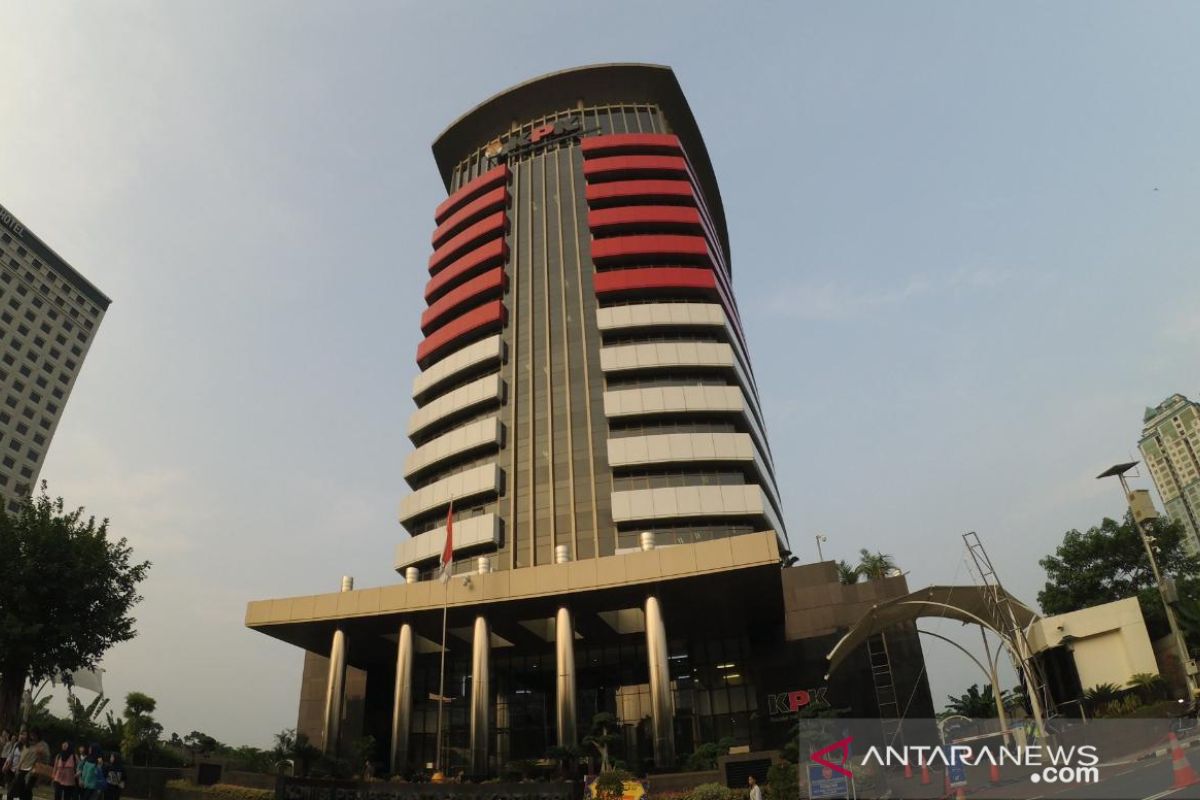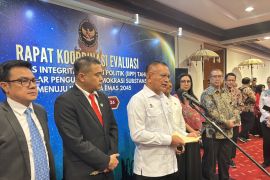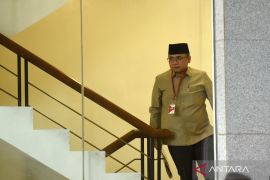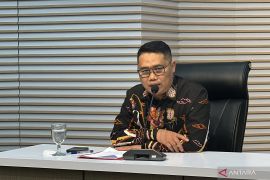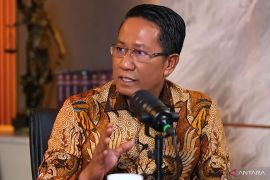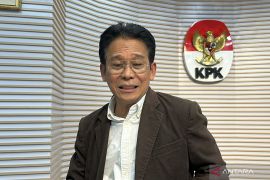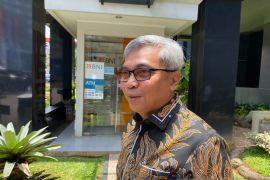"We must never stop our fight against corruption. We will continue to work in line with our ideal norms and rules," Rahardjo statedJakarta (ANTARA) - The Corruption Eradication Commission (KPK) will review amendment to Law No. 30 of 2002 of the KPK passed on Sept 17 by the House of Representatives and the Indonesian government, its spokesperson Febri Diansyah stated here, Wednesday.
The KPK had formed a transition team to study the revised law and offer recommendations to the anti-graft body's chairman and his four vice chairmen, Diansyah revealed.
"We will identify the consequences of the new law on the anti-graft body, mainly in terms of its structure and functions, the employee status, prosecution rules and procedures, and recommendations to the chairman," he remarked.
The rapid passage of a revision to the KPK law was done by lawmakers and the Indonesian government at the ninth plenary meeting at the House of Representatives building, Jakarta, in spite of activists and experts claiming the law was part of a concerted attempt to neuter the anti-graft body and its agenda to tidy up the business climate and rid it of corrupt practices.
However, KPK Chairman Agus Rahardjo affirmed his office’s steadfast commitment to eradicating corruption in Indonesia.
Related news: Lawmakers pass KPK bill into law
"We must never stop our fight against corruption. We will continue to work in line with our ideal norms and rules," Rahardjo stated in Jakarta.
Before the passage of the bill, the KPK was an independent state body authorized to eradicate corruption; supervise the government body and implement state governance; launch investigations and prosecutions; as well as organize precautionary measures.
However, with the new law in place, the KPK is currently no longer an independent state body but part of executive institutions under the government. Hence, the law necessitates all KPK employees to be civil servants, essentially turning it into a governmental body.
In addition to this status change, the amendment necessitates a supposedly independent supervisory board to be the deciding authority on any wiretapping, search, and seizure to be conducted by the KPK and will also monitor the works and administration of the anti-graft body.
Before the passage of the new law, the KPK was chaired by a chairman and four vice-chairmen. In terms of supervising its work, the anti-graft body was monitored by an internal office permitted to impose administrative sanctions on KPK officers.
With the new law in place, the KPK will also be able to issue investigation-termination warrants (SP3) if investigations into graft cases had yet to be completed for two years. Prior to the law, the KPK was allowed to launch investigations on some corruption cases for years. Related news: Commissioner alleges minister lied of KPK involvement in deliberation
Related news: Revised KPK law may weaken anti-graft body's authority: Vice chairman
Related news: Govt, Parliament in loggerheads during KPK bill deliberation: Jokowi
EDITED BY INE
Translator: Benardy Ferdiansyah/Genta Tenr
Editor: Fardah Assegaf
Copyright © ANTARA 2019
